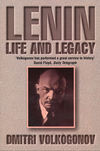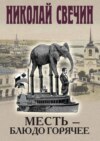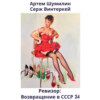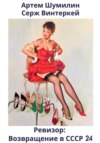Читать книгу: «Lenin: A biography», страница 4
The Forerunners
The list of those who have been proposed as Lenin’s ideological precursors is long, and it starts with the radical nineteenth-century philosopher Nikolai Chernyshevsky. Arrested in 1862 for seditious agitation, Chernyshevsky was to spend the next twenty years in prison and in Siberian exile, where he served seven years of hard labour. Before his deportation from St Petersburg, however, he managed in 1864 to write his novel What is to be Done? and to have it smuggled out and published. It was to inspire an entire generation of Russian youth with ideas of self-emancipation and the duty to bring knowledge to the peasants. Other suggested early sources of Lenin’s revolutionary awakening include various Populist thinkers and Plekhanov’s Marxist ‘Emancipation of Labour’ Group. It is interesting to note what Lenin himself thought of the origins of his political thinking. In an essay on Lenin in 1933, Karl Radek, a brilliant pamphlet-writer and juggler of paradoxes, wrote: ‘When Vladimir Ilyich once saw me looking at a collection of his 1903 articles … his face lit up with a cunning grin and he said with a chuckle, “Interesting to see what fools we were.”’33
The sources of Lenin’s political outlook were complex, and there can be no argument about the formative effect of his brother’s death, which sent a ray of white light through the prism of his mind, a ray which, to paraphrase Winston Churchill, was refracted by that prism into red.34 The ‘prism’ was in fact a constellation of circumstances. The first of these was the government’s treatment of Vladimir and his family. When Lenin entered Kazan University in 1887, he went with a glowing testimonial from his headmaster in Simbirsk, Fedor Kerensky, who wanted to protect him from adverse association with his brother’s notoriety: ‘Neither in school nor outside did Ulyanov ever give occasion, either by word or deed, to arouse an unfavourable opinion among the school authorities or his teachers.’35 Even when Lenin was expelled from the university in the December of his first year for taking part in a student demonstration, Kerensky, both to defend the young man and to justify his confidence in him, wrote: ‘[Vladimir Ulyanov] might have lost the balance of his mind as a result of the fatal catastrophe that has shattered the unhappy family and, no doubt, has also influenced the impressionable youth disastrously.’36 But on the first occasion when Lenin attended a student meeting, during his first term at the university, he had already been ‘marked’ by the authorities.
The administrator of the Kazan educational region noted that, two days before the demonstration took place, ‘Ulyanov was up to no good: he was spending his time in the smoking-room, chatting and whispering …’ It seems that the ‘demonstration’ amounted to little more than running up and down a corridor,37 but in view of the fact that he was the brother of a condemned ‘state criminal’, Ulyanov was not merely expelled but also sent away from Kazan to the family estate at Kokushkino.
By labelling him as unreliable and suspect, the expulsion effectively excluded the young Lenin from the state educational system altogether. When his mother applied for him to be reinstated at Kazan, the Director of the Police Department in St Petersburg, P.N. Durnovo, noted, ‘We can scarcely do anything for Ulyanov.’38 The Director of the Education Department was more emphatic: ‘Isn’t this the brother of that Ulyanov? He’s also from Simbirsk high school. Yes, it’s clear from the end of the document. He should certainly not be admitted.’39 By thus ostracizing him, the tsarist authorities were steadily narrowing Lenin’s range of choices. His solidarity with his dead brother became more firmly fixed. The letters he wrote, in which he respectfully requested ‘Your Excellency’s permission to enter the Imperial Kazan University’, or had ‘the honour most humbly to request Your Excellency to allow me to go abroad to a foreign university’, and which he signed ‘Nobleman Ulyanov’, were at first unsuccessful.40 The spirit of protest grew as the regime rejected him.
Expulsion did not mean Lenin now had to earn his living as a docker or shop assistant, like his grandfather. He was ‘exiled’ to Kokushkino, and the family then moved to their farm at Alakaevka, about thirty miles from Samara. His mother acquired the property of some two hundred acres in early 1889 for the sum of 7500 roubles. Lenin now immersed himself in reading a wide range of Western and Russian social-political literature, including Marx’s Capital. The police kept their eye on him, but he gave them no trouble. Apart from attending an illegal meeting and occasionally seeing some Marxists, it is difficult to find any evidence of the so-called ‘revolutionary period in Samara’. It would be more accurate to describe this time as one of intensive preparation for the examinations to enter St Petersburg University as an external student. By the time he reached the age of twenty-two, Lenin had acquired a first-class diploma from St Petersburg and been accepted as a lawyer’s assistant on the Samara circuit. He was not destined to succeed at this profession and he soon cooled towards the busy life of a defence attorney. The few cases he was given to handle were only petty thefts or property claims, and he accomplished even these with variable success, although he did defend his own interests twice, winning on both occasions. In one case he sued his peasant neighbours for damage to the Ulyanov estate, and, much later, during a period of residence in Paris, he sued a vicomte who ran him over when he was riding his bicycle. His legal career was not something Lenin was ever keen to recall.
Returning to the question of his revolutionary roots, the time at Kokushkino was one of intensive study of the widest range of ideas. In conversation with Valentinov in 1904 in Geneva – one of the many European cities where he spent seventeen years as an émigré, with a brief interval back in Russia during the 1905 revolution – Lenin recalled reading non-stop from early morning until late at night. His favourite author was Chernyshevsky, whose every word published in the journal Sovremennik he read. ‘I became acquainted with the works of Marx, Engels and Plekhanov,’ he stated, ‘but it was only Chernyshevsky who had an overwhelming influence on me, beginning with his novel What is to be Done?. Chernyshevsky’s great service was not only that he showed that every right-thinking and really decent person must be a revolutionary, but something more important: what kind of revolutionary, what his principles ought to be, how he should aim for his goal, what means and methods he should employ to realize it …’41
Valentinov suggests that it was Chernyshevsky, who had in Lenin’s own words ‘ploughed him over’ before he had read Marx, who made the young man into a revolutionary. It is a view contested by the Menshevik writer Mark Vishnyak, who pointed out that Lenin read Chernyshevsky a month or two after the execution of his brother, and therefore ‘the soil was ready for ploughing over’, and it was the news of that event, Vishnyak claimed, that gave Lenin the charge he had needed, not Chernyshevsky’s ‘talentless and primitive novel’.42 These two views boil down to the same conclusion, namely that Chernyshevsky was Lenin’s John the Baptist thanks to the tragedy of Alexander.43 Chernyshevsky, whatever else Lenin took from him, made it possible for the young man to absorb a profound hostility towards liberalism, as one of his earliest works (1894) shows. ‘Who are the “friends of the people” and how do they fight against the social democrats?’ was published (unsigned) in mimeographed form in St Petersburg, and in it Lenin repeatedly cited Chernyshevsky and called his judgments ‘the foresight of genius’, while the ‘loathsome’ compromise of the ‘liberals and landowners’ could only hamper ‘the open struggle of the classes’ in Russia.44 He wanted to use Chernyshevsky’s writings in his attacks on the liberal bourgeoisie, particularly in order to expose the existence of ‘an entire chasm’ between the socialists and the democrats.45
In effect, Lenin used Chernyshevsky to ‘russify’ Western Marxism, which had too much of the liberal and democratic and too little ‘class war’. The split that was to take place among the Russian social democrats would be precisely over attitudes to democracy, to legal, parliamentary means of struggle, to the place of political parties in a democracy and the strength of liberal persuasion. Lenin’s forebears were, thus, those thinkers who fostered notions which reinforced the coercive, harsh, class elements in Marxism. It would therefore be true to say that Lenin was guided by pragmatic considerations in becoming a revolutionary. While worshipping classical Marxism, he could borrow concepts and ideas, arguments and rebuttals from Chernyshevsky, Peter Tkachev, Sergei Nechaev, Mikhail Bakunin, Carl Clausewitz, Peter Struve, Peter Lavrov and Alexander Herzen. He reinforced his ‘mainline’ Marxism with everything that made that teaching uncompromising, harsh and radical. Recalling the first weeks of the Soviet regime, Krupskaya wrote: ‘Closely studying the experience of the Paris Commune, the first proletarian state in the world, Ilyich remarked on the pernicious effect of the mild attitude of the workers and proletarian masses and the workers’ government towards their manifest enemies. And therefore, when speaking about struggling with enemies, Ilyich always “tightened the screws”, so to speak, fearing the excessive mildness of the masses, as well as his own.’46
The presence of Nechaev among the names of Lenin’s sources should give pause. Both Marx and Engels had condemned Nechaev’s doctrine of individual terror – just as Lenin himself would on numerous occasions. But Nechaev was more than an advocate of terror, he was synonymous with conspiratorial politics, entailing secret plans for the overthrow and merciless extermination of hated authorities and governments. In the terminology of the time, such tactics were called Blanquist, after Louis Auguste Blanqui, a radical activist in France during the 1830s and 1840s. While condemning this approach, Lenin would unhesitatingly resort to it at decisive moments. As Plekhanov wrote in 1906: ‘From the very beginning, Lenin was more of a Blanquist than a Marxist. He imported his Blanquist contraband under the flag of the strictest Marxist orthodoxy.’47 The Bolshevik Vladimir Bonch-Bruevich recalled Lenin discussing Nechaev, who had been depicted by Dostoevsky in his novel The Possessed, which fictionalized the murder of a student by Nechaev and his ‘Secret Reprisal’ group: ‘Even the revolutionary milieu was hostile to Nechaev, forgetting, Lenin said, “that he had possessed a special talent as an organizer, a conspirator, and a skill which he could wrap up in staggering formulations.”’ He also approvingly quoted Nechaev’s reply to the question of which of the Romanovs should be killed: ‘The entire House of Romanov!’48
Vladimir Voitinsky, an economist and active Bolshevik in 1905, recalled discussing Lenin’s abandonment of liberalism in conversations at the time. Lenin used to talk about the need to combat ‘liberal pompous triviality’. ‘Revolution,’ Lenin would say, ‘is a tough business. You can’t make it wearing white gloves and with clean hands … The Party’s not a ladies’ school … a scoundrel might be what we need just because he is a scoundrel.’49 Nechaev’s famous dictum, ‘Everything that helps the revolution is moral. Everything that hinders it is immoral and criminal,’ was echoed by Lenin at the III Congress of Communist Youth in 1919 when he said that everything is moral that promotes the victory of Communism. In 1918 he declared to Maria Spiridonova, the doyenne of terrorists and a member of the Socialist Revolutionary Party, that there was no room for morality in politics, only pragmatism.
Lenin adopted Marxism as a weapon, ‘freeing’ it of its ‘liberal’, ‘democratic’ trivialities, because the steel fist of the proletarian dictatorship had no need of gloves. Following the Bolsheviks’ forcible dispersal of the Constituent Assembly in January 1918, Plekhanov, ‘the father of Russian Marxism’, could write in his last article: ‘The tactics of the Bolsheviks are the tactics of Bakunin, and in many cases those of Nechaev, pure and simple.’50 The question of who were Lenin’s ideological forebears, therefore, is answered simply: he used anything and anyone if it helped him achieve his aim.
The Discovery of Marxism
There may be many reasons why Lenin became captivated by Marxism. In my opinion, his powerful and already extremely well informed mind was searching for a universal explanation of human existence. In any event, some time on the eve of 1889, when the family was still living in Kazan, he got hold of the first volume of Capital. It must have been a revelation simply in terms of the scale of its grasp, regardless of its rôle in history. Nietzsche once remarked on the ‘attraction of the distance’, and for the young Lenin, with his radical outlook, Capital’s historical distance captured his imagination, seeming to lead to the solution to all of life’s eternal and ‘accursed’ questions of justice, freedom, equality, oppression and exploitation. But who introduced Lenin to Marxism?
At the time he was expelled from university, there was a convinced young Marxist, called Nikolai Fedoseev, living in Kazan. Lenin was to meet him only once, nearly ten years later, when they were both on their way to exile in Siberia. Fedoseev had compiled a reading list for social democrats, and Lenin told Gorky in 1908, when they were together on Capri, that ‘it was the best reference book anyone had yet put together’, and that it had helped him find his way through political literature, opening the path for him to Marxism.51 Lenin’s first known writing was a piece written in 1893 called ‘New Economic Movements in Peasant Life’, in effect a review of V.E. Postnikov’s book The South Russian Economy.52 The article, which was unsigned, read like a schoolboy’s attempt at Marxist analysis. There is little of Lenin’s own ideas in it and it was rejected by the journal, Russkaya mysl’. He had greater success with a second review-article, also written in 1893 and similarly unsigned, called ‘On the So-called Question of Markets’, in which he contrasted Marxist and Populist (Narodnik) ideas on the development of capitalism in Russia, in effect arguing that ‘class’ and impersonal historic need had replaced the ‘critically thinking individual’. This article was also not published, but Lenin read it at a meeting of Marxist students in St Petersburg in the autumn of 1893, and received the praise of the engineering students present.
Lenin soon went beyond the guidelines of Fedoseev’s catalogue, and it is evident from his earliest, as well as his later, works that two main ideas in Marxism dominated his thinking: classes and class struggle, and the dictatorship of the proletariat. No other Marxist theorist took these concepts as far as Lenin, despite the fact that Marx had said very little about the dictatorship. As a social democrat, Lenin did not limit himself to commenting on and recapitulating the interpretations given by Marx and Engels, but formulated his own ‘classical’ definitions. For instance, on rural poverty, he asked, ‘What is the class war?’ and gave the answer, ‘It is the struggle of one part of the people against another, the mass of the rightless, oppressed and toiling against the privileged, oppressing and parasitic, it is the struggle of the workers or proletarians against the owners or the bourgeoisie’.53 Like so many other thinkers and revolutionaries, Lenin would fall into the trap of thinking that it was only necessary to take everything from the ‘haves’ and redistribute it ‘fairly’ and all would be well. It was the eternal mirage. As the philosopher Nikolai Berdyaev observed: ‘Many times in history the lower orders have risen up and tried to sweep away all hierarchical and qualitative differences in society and to install mechanical equality … But class is quantity and man is quality. Class warfare, elevated to an “idea”, conceals the qualitative image of man … Thus the idea of class kills the idea of man. This murder is carried out theoretically in Marxism …’54
The context in which Lenin acquired his Marxism was the debate with romantic Populism. In one of his early works, ‘What is the Legacy we are Rejecting?’, he rightly criticized N.K. Mikhailovsky, one of the leading exponents of liberal Populism, for the Populist refusal to accept capitalism in Russia and for the Populist idealization of the peasant commune.55 One can already detect in this article echoes that will soon become a hallmark of Leninist usage – ‘rubbish’, ‘slander’, ‘trivial trick’ – often as a substitute for real argument. It seems never to have occurred to Lenin to ask himself whether the dictatorship of the proletariat was compatible with the justice Marxism cherished as a fundamental idea. By what right should one class unconditionally command another? Could such a dictatorship achieve priority over the highest value, namely liberty?
Such questions did not trouble the young Lenin. When he accepted Marxism it was finally and irrevocably. He never questioned the socio-political concept of the doctrine, which was based in the last analysis on coercion as the solution to all contradictions in the interests of one class. He was never troubled by the viciousness and narrowness of this way of building the new society. It was not therefore surprising that when he became the ruler of that new society, his main preoccupation was with the punitive organs, the Cheka (the political police) and the State Political Administration, or GPU. Indeed, reading the minutes of Lenin’s Politburo after the seizure of power, it quickly becomes clear that there was scarcely a session that did not review measures for tightening the dictatorship of the proletariat – that is, the dictatorship of the Party – by widening the powers of the punitive bodies, legislating terror, ensuring the immunity of the new caste of ‘untouchables’ and the class ‘purity’ of its members. Thus, on 14 May 1921 the Politburo, with Lenin’s active encouragement, adopted a decision to widen the powers of the Cheka ‘in the use of the highest form of punishment’, i.e. the death penalty;56 in January 1922 a further step was taken to strengthen the punitive function of the dictatorship and the guarantee of the ‘class line’ by the creation of the GPU, whose chief task was to struggle against counter-revolution using the widest range of physical and psychological force. And the courts ‘must include people chosen by the Cheka’.57
As for the way these bodies were to act, Lenin himself set the style. When a cipher arrived from the Red Army in the Far East in August 1921 announcing the arrest of Baron Ungern von Sternberg, one of the leaders of the White forces in the Trans-Baikal region, Lenin personally raised the question of a trial at the Politburo. Naturally there were no objections, and he merely had to dictate the Politburo resolution as that of the highest Party tribunal: ‘The accusations must be sound, and if the proof is conclusive and beyond doubt, then a public trial should be set, conducted with the greatest despatch, and [Ungern] should be shot.’58 So much for a ‘trial’!
Nikolai Fedoseev could never have dreamed that the young man he met briefly in a station waiting-room in Siberia in 1897, as their paths into exile crossed, would turn out to be a major figure in twentieth-century history. The correspondence between the two men leaves no doubt that it was Fedoseev who had, however imperceptibly, given Vladimir Ulyanov another shove in the direction of revolution. When Lenin heard in the summer of 1898 that Fedoseev had killed himself at Verkholensk in Eastern Siberia, he was genuinely saddened. The death of the exile was embellished by romantic tragedy when his fiancée, Maria Gofengauz, living at Archangel in forced settlement, and with whom Lenin was acquainted, also killed herself. Lenin often recalled Fedoseev warmly. Gorky wrote that on one occasion, when Fedoseev was mentioned, Lenin became animated and said excitedly that if he’d lived, ‘he’d no doubt have been a great Bolshevik’.59
For Lenin, Marxism meant above all one thing, and that was revolution. It was the revolutionary message of the doctrine that attracted him in the first place. He absorbed its ideas and propositions as a convinced pragmatist, and was less interested in the early humanistic writings of Marx and Engels than he was in those concerned with the class struggle. He plunged into the Marxist world of categories, laws, principles, legends and myths, and regarded Plekhanov with reverence, which may explain why the ideas he drew from Marxism were free of a purely ‘Western’ vision of historical evolution. He was entranced by Plekhanov’s On the Monistic View of History, published under the pseudonym of N. Beltov, a book in which, Potresov wrote, the author ‘brought the ten commandments of Marxism down from Mount Sinai and handed them to the Russian young’, and, as Nicolaevsky echoed, ‘introduced the Russian intelligentsia, above all the students, who were the avant-garde of the revolutionary army at the time, to undiluted revolutionary Marxism’.60 Plekhanov wrote that ‘Chernyshevsky never missed an opportunity to mock the Russian liberals and to state in print that … he … had nothing in common with them. Cowardice, short-sightedness, narrow views, inactivity and garrulous boastfulness, these were the distinguishing features he saw in the liberals’. Plekhanov had taken as the epigraph for his book an extract from a letter Chernyshevsky had written to his wife in October 1862 when he was in the Peter-Paul Fortress in St Petersburg: ‘Our life together belongs to history: in hundreds of years from now our names will still be dear to people, and they will remember them with gratitude …’61 Lenin must have felt an affinity with these words. He was not vain or ambitious, he simply believed in his historic mission. Plekhanov’s works brought Lenin still closer to Chernyshevsky, and finally led him to the social democratic Bible, the works of Marx.
Plekhanov and Lenin would part in due course for reasons usually ascribed to differences over organization. I believe that this was a secondary cause, and that the real reason for their split was over attitudes to liberty. As early as the end of the century, Lenin, like Chernyshevsky before him, was already defining the main enemies of the working class as liberalism and so-called ‘Economism’, a sort of Russian trade unionism which encouraged the workers to organize and fight for a better economic life, while the intelligentsia would struggle for their political and civil rights. In Lenin’s view, and that of his followers, the liberals and ‘Economists’, by leading the workers away from political struggle, were denying them the opportunity to aim for socialist revolution. The Marxism preached by Lenin and the Bolsheviks had no place for liberalism and ‘Economism’, which in fact held the key to democratic change in Russia. To the end of his life, Lenin was therefore sympathetic to the early Plekhanov and openly hostile to the later one, who was to call Lenin’s 1917 policy ‘delirious’. It is interesting to note that when in April 1922 the Politburo discussed the publication of Plekhanov’s works, Lenin insisted that only one volume be compiled, and only of his early, ‘revolutionary’ writings.62
If Lenin was not fond of late Plekhanov, he positively hated the Plekhanov of the revolutionary era. Plekhanov had seen through Lenin, he understood the essence and the danger of his line. In his 1910 article ‘A Comedy of Errors’, published in his Dnevnik sotsial-demokrata, he wrote that ‘only Lenin could have gone so far as “to ask myself in which month we should begin the armed uprising …”’. Lenin’s plans, which boiled down to a seizure of power, Plekhanov called utopian.63 And indeed, as soon as the Bolsheviks had power in their hands, they quickly forgot many of their slogans and promises. Power for Lenin was the goal and the means to bring about his utopian designs.
While absorbing Marxism from the writings of the doctrine’s founders, Lenin also took up ideas from a wide range of thinkers and writers, a fact suggesting perhaps a developed ability to comprehend and, by applying his own ‘ferment’, to absorb, digest and make those ideas his own. He was, however, never able to assimilate the ideas of the liberals, who proclaimed the rule of law, or the ‘Economists’, who wanted the workers to flourish, or the Western democrats, who put parliamentary government above all else. Lenin’s ‘discovery’ of Marxism was thus extremely selective; he saw in it only what he wanted to see. Even Trotsky, who after October 1917 and to the end of his days described himself as a Leninist, criticized Lenin at the turn of the century for his lack of ‘flexibility of thought’, his belittling of the rôle of theory, which could lead to a ‘dictatorship over the proletariat’.64
By the turn of the century Lenin had acquired the conviction that, as far as his opponents were concerned, his theoretical position was unassailable, and henceforth he exhibited a rare hostility to everything that would not fit the Procrustean bed of his preconceptions. In a letter to Maxim Gorky in 1908 – the famous writer was a major benefactor of the revolutionary movement and had a close, if complex, relationship with Lenin after 1907 – on the philosophical work of the Bolshevik Alexander Bogdanov, Lenin wrote: ‘After reading it, I got into a rage and became unusually furious: it became clear to me that he has taken an arch-wrong path.’ He went on: ‘I became frenzied with indignation.’ What had made him so angry was that the Bolsheviks might draw their teaching on the dialectic ‘from the putrid well of some French “positivists” or other’.65 His Marxism was, however, plainly one-sided, Blanquist, super-revolutionary. Like a man ‘with the truth in his pocket,’ Viktor Chernov, leader of the Socialist Revolutionaries, wrote, ‘he did not value the creative search for truth, he had no respect for the convictions of others, no feeling for the freedom that is integral to any individual spiritual creativity. On the contrary, he was open to the purely Asiatic idea of making the press, speech, the rostrum, even thought itself, the monopoly of a single party which he raised to the rank of a ruling caste.’66
Marx and Engels were theorists. Lenin turned their teaching into a catechism of class struggle. As the writer Alexander Kuprin observed: ‘For Lenin, Marx was indisputable. There isn’t a speech in which he does not lean on his Messiah, as on the fixed centre of the universe. But there can be no doubt that if Marx were to look down from where he is on Lenin and his Russian, sectarian, Asiatic Bolshevism, he would repeat his famous remark, “Excuse me, monsieur, but I am no Marxist.”’67
Бесплатный фрагмент закончился.
































